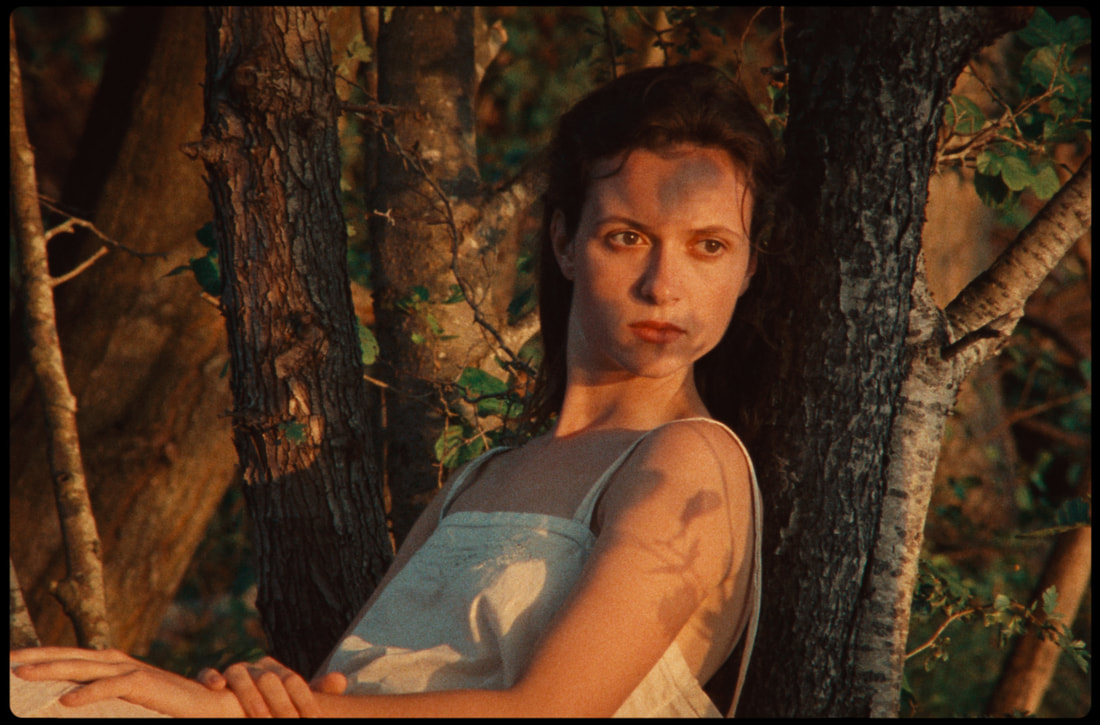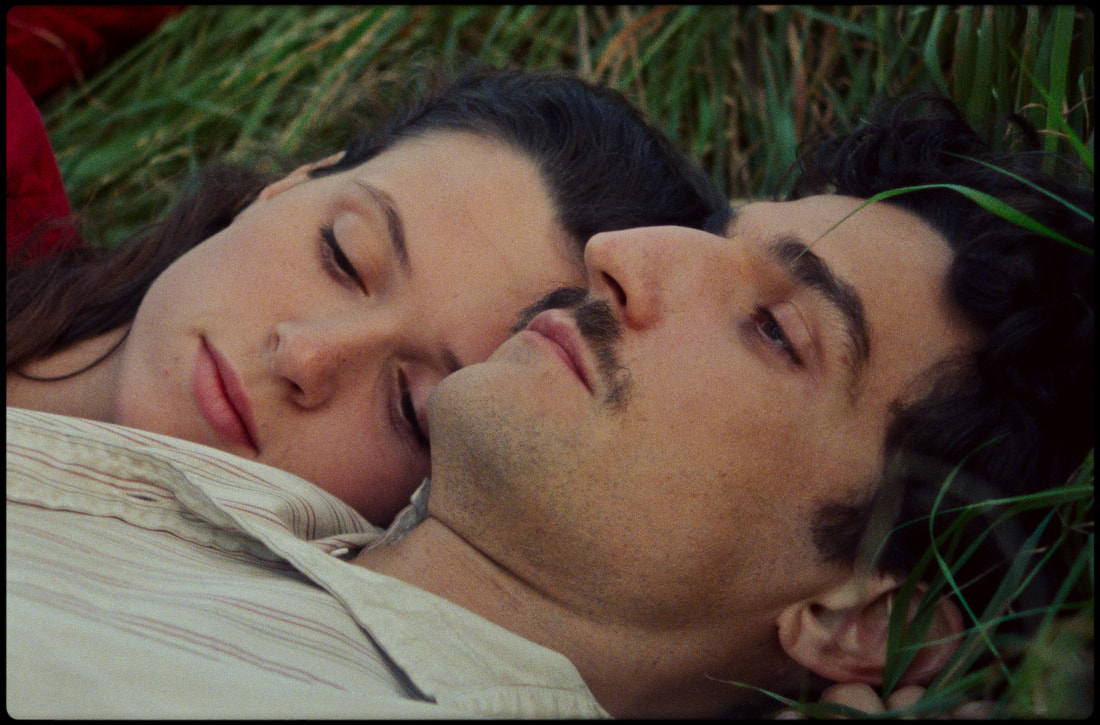|
Review by Sean Boelman
Italian filmmaker Pietro Marcello’s work has been gaining more and more international recognition in recent years — and for good reason, as his films are consistently visually splendid. His newest movie, Scarlet, does not disappoint from an aesthetic standpoint, even if it does leave something to be desired narratively.
The film follows a young woman over a period of twenty years as she grows up and grows free, coming to a unique understanding of the world in an era bookended by war. Although the movie may seem like a coming-of-age tale on its surface, it’s actually something much more nuanced — although this nuance does give way to frustrating ambiguity at times. It seems to be common for Marcello that his films tend to be somewhat overindulgent when it comes to runtime, even though his movies are never that long. In Scarlet, there are several sequences that drag, lingering on the landscapes that have been left desolate by war, poverty, and famine. You get Marcello’s point early, and it eventually starts to feel like overkill. It also doesn’t help that the script — adapted from the novel by Alexander Grin — feels somewhat aimless. For much of the first act, it seems like this is going to be an anti-war film, as a father returns home from war, though in the second and third acts, it weaves its way into what seems to be intended as a feminist fable. There are a lot of fascinating elements in the movie, but they simply don’t come together as well as Marcello seems to think they did.
For a film that follows the same set of characters over the span of a few decades, one would expect the character development to be stronger. Although it’s easy to sympathize with the characters, the movie lacks that strong emotional connection that could take it to the next level. More time spent on the father-daughter relationship could have provided this much-needed crux.
The film boasts a brilliant ensemble, with many wonderful actors all getting a chance to shine. Of course, the biggest highlight is Juliette Jouan, who is absolutely lovely as the eldest version of the protagonist. Other strong players include Raphaël Thiéry, who infuses a ton of humanity into his role as a loving but scarred father, and Louis Garrel, as restrained as always. The movie also boasts extraordinary cinematography, although that is no surprise. Marco Graziaplena’s eye is simply extraordinary, and the choice to give the film a worn, almost homey aesthetic does wonders. The music isn’t half bad either, some of that success owing to Jouan’s lovely voice. Scarlet is a bit underdeveloped and scattered in a narrative sense, but its strong performances and gorgeous visuals will keep the viewer engaged when the story doesn’t. Marcello continues to be more effective as a director than a writer — although this can be excused for someone whose work is so stunning to the eyes. Scarlet hits theaters on June 9. Rating: 3/5
0 Comments
Leave a Reply. |
Archives
July 2024
Authors
All
|
|
|
disappointment media
Dedicated to unique and diverse perspectives on cinema! |


